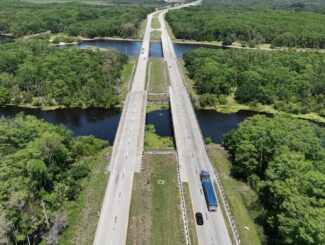May 13, 2024
By Behnaz Beladi, Director of Renewable Energy, WSB
Escalating environmental concerns and urbanization are driving a paradigm shift in city energy priorities, encouraging them to invest in sustainable solutions. Renewable energy offers a plethora of benefits including reduced greenhouse gas emissions, improved air quality and enhanced energy security. Transitioning to renewables presents an opportunity for cities to assert their commitment to sustainability while simultaneously reaping economic advantages through job creation and investment in clean technologies.
Key to this transition is the development of comprehensive renewable energy strategies tailored to the unique characteristics and needs of each city. These strategies encompass a multifaceted approach, incorporating policy initiatives, technological innovations, funding opportunities and community engagement.
Targeting Local Policy and Embracing Innovation
At the policy level, cities must enact ambitious targets and regulations to incentivize the adoption of renewable energy solutions. This may involve setting renewable energy mandates, implementing carbon pricing mechanisms and phasing out subsidies for fossil fuels. Additionally, cities can leverage their purchasing power to procure renewable energy for municipal operations and encourage private sector investment in clean city energy projects.
Technological advancements play a pivotal role in facilitating the integration of renewable energy into urban infrastructure as well. From solar panels and wind turbines to energy-efficient buildings and smart grids, cities have a myriad of options at their disposal to harness clean energy sources. Embracing innovative technologies not only reduces carbon emissions but also enhances energy efficiency and promotes a more resilient urban infrastructure.
Using Federal Investment Opportunities
Recent investments from legislation like the Infrastructure Investment and Jobs Act (IIJA) and the Inflation Reduction Act (IRA) grant cities new opportunities and room to maneuver. Some of these investments include $16.5 billion for the deployment of new transmission lines, $21.5 billion towards clean energy demonstration projects that are directed towards large projects that drive local and regional economies and $40 billion in loan authority for clean energy projects. These programs create new opportunities for cities to not only develop renewable and sustainable energy solutions, but also economic drivers for their communities.
However, these types of investments will not fund the entirety of any one project, and each grant will include a variety of requirements that first need to be met. Cities that incentivize the adoption of renewable energy solutions will set the groundwork necessary for the types of investments made available by federal legislation like the IIJA and IRA or from state agencies. Federal and state investments can be a boon to a city’s energy development plans.
Collaborating and Cooperating Across Communities and Industries
As cities transition to renewable energy, local community engagement is also incredibly important. Empowering residents through education, outreach and participation in decision-making processes fosters a sense of ownership and collective responsibility for sustainability initiatives. Community-led initiatives, such as neighborhood solar cooperatives and energy efficiency programs, can significantly contribute to the widespread adoption of renewable energy at the grassroots level.
Moreover, transitioning city energy towards renewable energy requires collaboration and cooperation across multiple stakeholders, including government agencies, businesses, academia and civil society organizations. By fostering partnerships and knowledge-sharing platforms, cities can leverage collective expertise and resources to overcome barriers and accelerate progress towards sustainability goals.
Challenges and How WSB Can Help Overcome Barriers
While there are numerous benefits in clean energy transitions for cities, there are also challenges. From policy barriers and technological limitations to financial constraints and community resistance, the path to achieving sustainable urban transformation is fraught with obstacles. However, WSB is uniquely positioned to help cities overcome these challenges and navigate the complexities of transitioning to clean energy.
For municipalities struggling to develop and implement policies that incentivize the adoption of renewables, WSB can provide invaluable expertise in policy analysis and development, helping cities design and enact robust regulatory frameworks that promote renewable energy deployment.
Technological barriers may also pose significant challenges to the widespread adoption of renewable energy in urban environments. WSB specializes in innovative engineering solutions, and we can work with cities to design and implement cutting-edge renewable energy technologies tailored to address the unique needs and constraints of urban infrastructure.
For cities exploring what renewable energy investments fit financially for their community, WSB can help by conducting feasibility studies, identifying funding sources and developing business models that maximize return on investment.
Finally, for those working to garner support and build community consensus for renewable energy projects, WSB specializes in stakeholder engagement, facilitating dialogue between local communities, government agencies and other stakeholders.
Overall, federal and state funding for renewable energy projects is spurring many cities toward exploring and investing in renewable energy. For cities unsure of where to start or for cities who need help navigating the complex nature of renewable energy projects, WSB brings together multidisciplinary experts with diverse skill sets and backgrounds to help cities address their unique challenges and chart a course toward a cleaner, greener and more prosperous future.
Behnaz manages the multi-disciplinary renewable energy team in project and program operations. She is an accomplished academic, with a PhD of Mechanical Engineering from the Technical University of Vienna, an associate of the North American Board of Certified Energy Practitioners (NABCEP) and has served on the board of the Minnesota Solar Energy Industries Association, advocating for policy and regulatory initiative’s that strengthen the industry.
[email protected] | 612.468.8423


